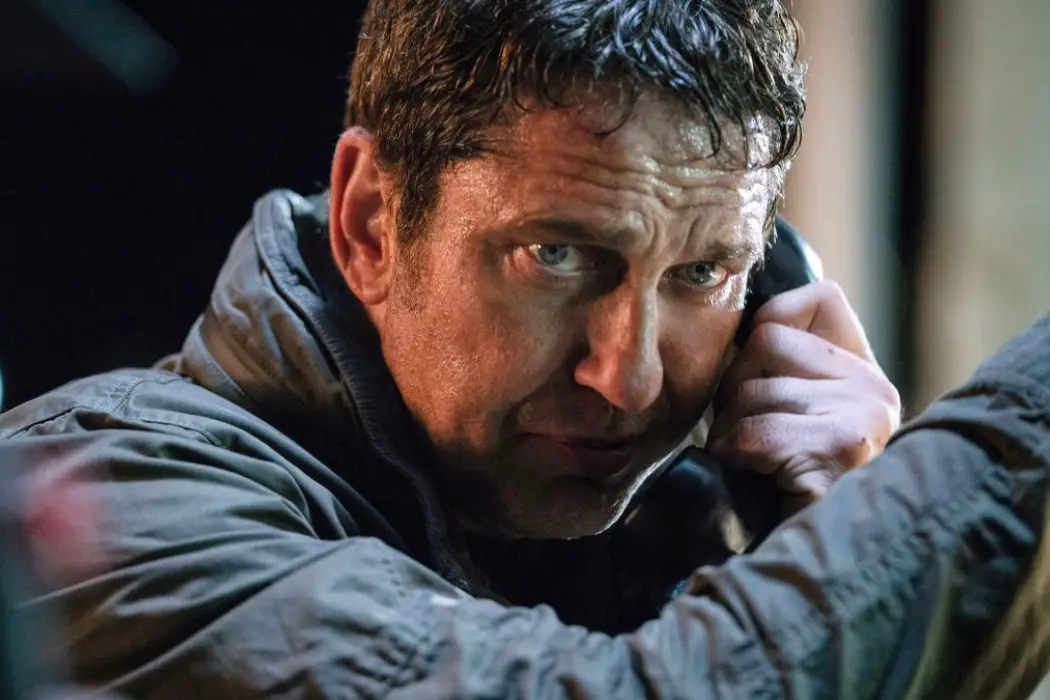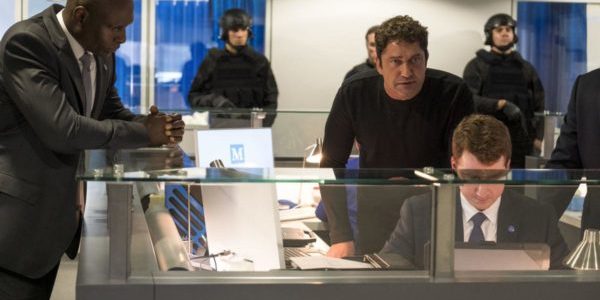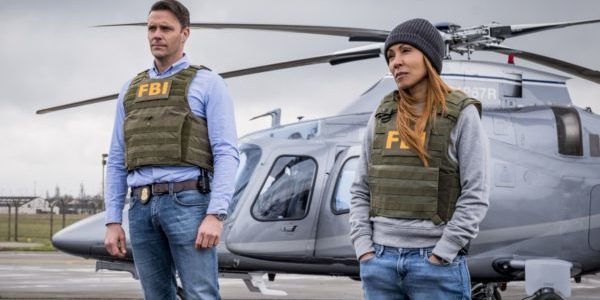ANGEL HAS FALLEN: An Old Dog With A Couple New Tricks

Midwesterner, movie lover, cinnamon enthusiast.
Every three years, since 2013, we’ve had an opportunity to check in with Mike Banning (Gerard Butler), the secret service hero of Olympus Has Fallen, London Has Fallen and now Angel Has Fallen. But where the first two were siege films built around a nation, and national figures, protecting themselves against outside terrorist attacks, Angel Has Fallen stays inside the United States, pitting our hero, President Trumbull (Morgan Freeman)’s best secret service agent, against the government and friends he’s dedicated his life to preserve.
Thus far, the franchise has taken an approach similar to the Mission: Impossible series, cycling out a new director with each installment, starting with Antoine Fuqua and moving to Babak Najafi, who handed the baton to former stuntman Ric Roman Waugh. Although here, it’s a decidedly bargain-basement version of the same approach, which may be based on available, willing and inexpensive talent rather than to yield new artistic takes on the same character.
Mike Banning, the Man
In interviews, Roman Waugh said with Angel Has Fallen, instead of making another event film, he wanted to make a film about Mike Banning, the man — who he is, where he’s from, what he’s going through. What this translates to in the finished film is getting to know his old military buddy Wade (Danny Huston), his father Clay (Nick Nolte) and some vague details about his struggling mental health and addiction to opioids.

Mike is getting old. He’s a shoo-in to succeed Lance Reddick’s (replacing Angela Bassett) retiring secret service director but doesn’t know if he’s healthy enough to accept it in good conscience. Meanwhile, he’s framed for an assassination attempt on the president by Wade, who heads up a Blackwater-like organization. This setup gives Roman Waugh a chance to send Banning off the grid on a The Fugitive-inspired runaway, which reunites him with his reclusive, long-lost father — a veteran who resents the military for essentially chewing up his body and mind and spitting him out a broken old man.
Nolte was a wise addition to the franchise; in the span of about five minutes, he gives two cathartic speeches that, as Butler has said in the press circuit, would be considered Oscar-worthy if this wasn’t a Has Fallen film. The two actors have the most chemistry two players have had throughout the entire franchise. Nolte attributes his acceptance of the role, in part, to Butler’s Scottish descent, “I got some Scottish blood too, but it’s mixed in with a whole bunch of other stuff.” All that other stuff going on inside Nolte finds a place in Clay, who offers Banning at look at what his life might look like if he doesn’t stop sacrificing his mental health for the sake of the state.
Right-wing Agitprop or Obama Nostalgia
Though the film has been wielded by Breitbart as a resonant parody of claims of Russian involvement in American politics — before Banning proves his innocence, the government suspects Putin is involved — it strikes me more as a film nostalgic for the Obama era, a time when we had a president who at least presented himself as someone concerned for human rights. The goal of the private military organization is to assassinate the president — who has been vocally anti-private military contracting — so that the vice president (Tim Blake Nelson) — who turns out to be pulling the strings of the Blackwater-adjacent organization — can be passed the country’s baton.

Roman Waugh’s film certainly isn’t a politically salient juggernaut snuck into multiplexes under the guise of a hyper-masculine action film, but it’s obviously interested in at least taking a stance. The biggest problem with its stance is how it seems to cower in the third act, pretending that the bad deeds of Wade and his organization aren’t driven by money, but a nostalgia for war and combat. If the film was truly motivated by its politics, it would, at the very least, attribute private contracting to war profiteering.
Angel Has Fallen: Conclusion
But Angel Has Fallen’s most significant issue is what keeps it from being a more functional piece of genre filmmaking: its filmmaker. Being a former stuntman, Roman Waugh’s priorities are predictably in the stunts and explosions. In those moments, whether it’s Clay bombing foot soldiers around his compound or the drone assassination centerpiece, the director does really impressive work (it surely helps that I saw this in a faux-IMAX theater with state-of-the-art sound). And likewise, he allows gunshots to be loud and visceral.
But Roman Waugh quickly loses himself whenever he has to translate the practical logic of a basic, moving action set piece, which is unfortunately how most of the film’s third act plays out. The film opens on a tactical practice scenario, Butler’s Banning dodging around an abandoned building, and it becomes so visually incoherent that I stopped trying to follow bodies moving on screen, and realized that if you divorce yourself from what is supposed to be happening on screen — the logic of the characters’ movement — to focus on what is actually happening on screen, Roman Waugh’s visuals quickly become Brakhagian, like something ripped from Mothlight. And during basic dialogue scenes, the filmmaker’s reliance on chaotic handheld and fuzzing out the foreground come across as a self-consciousness. He doesn’t quite feel comfortable with everything between the explosions. Thankfully, Butler, Nolte, Huston and Freeman go along way to make Angel Has Fallen enjoyable despite its director’s shortcomings.
Angel Has Fallen was released in theaters in the UK on August 21, 2019 and the US on August 23, 2019. For all international release dates, see here.
Does content like this matter to you?
Become a Member and support film journalism. Unlock access to all of Film Inquiry`s great articles. Join a community of like-minded readers who are passionate about cinema - get access to our private members Network, give back to independent filmmakers, and more.













